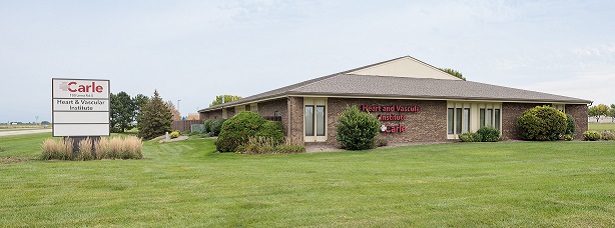Carle Health
Expanding Access to Care in Rural Communities with 340B Savings

It’s been over 30 years since the federal 340B drug discount program required pharmaceutical companies to sell drugs at a discount to healthcare organizations. The purpose: to allow hospitals that care for uninsured and low-income patients to expand access to care and provide more comprehensive services.
Yet, in 2020, pharmaceutical companies began restricting the ability of 340B hospitals to distribute discounted drugs through contract pharmacies. At Carle Health, an eight-hospital system based in Urbana serving mainly rural communities, those restrictive measures have caused its volume of 340B-priced prescriptions dwindle to almost nothing.
As a result, the health system has lost a vital funding source for its efforts to expand access to care and to provide free and discounted care and medications—which drive improved patient outcomes.
The consequences of pharmaceutical company limitations include:
-
Preventing community pharmacies from providing 340B discounted pricing on almost all name brand medications and a large portion of generic medications;
-
Jeopardizing the health system’s ability to pass on 340B savings directly to qualified patients who are uninsured or have Medicaid coverage;
-
Imperiling programs and services Carle Health developed using savings from the 340B program; and
-
Leaving patients to travel farther for needed medications, which is very difficult in rural areas.
Carle Health hospitals include Carle BroMenn Medical Center in Normal; Carle Eureka Hospital in Eureka; Carle Foundation Hospital in Urbana; Carle Health Methodist Hospital in Peoria; Carle Health Pekin Hospital in Pekin; Carle Health Proctor Hospital in Peoria; Carle Hoopeston Regional Health Center in Hoopeston; and Carle Richland Memorial Hospital in Olney.
These hospitals offer a variety of initiatives to expand access to care and stretch scarce resources, just as the 340B drug discount program intended. They include:
-
Assisting patients in obtaining transportation for healthcare services;
-
Providing the opioid overdose reversal drug Narcan to local police departments and to families of patients with opioid use disorder;
-
Expanding high-quality healthcare in rural communities for both primary care and specialties;
-
Establishing the Transitional Care Clinic to provide intensive intervention services to medically complex patients immediately following hospitalization; and
-
Providing laboratory services to individuals living with HIV in the East Central Illinois HIV Care Connect program.
Like many hospitals and health systems across Illinois, Carle Health is confronting increased operational costs. The system remains committed to providing patients with high-quality care and supportive services to help them achieve optimal health.

